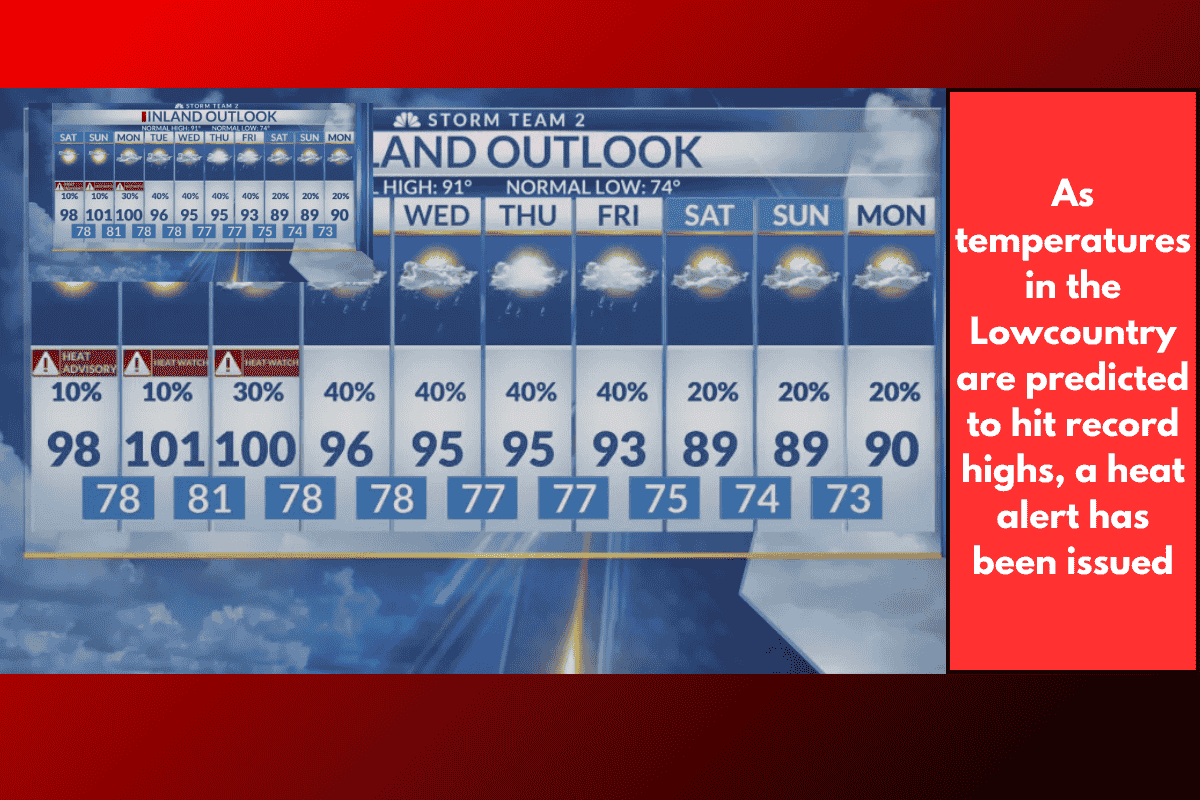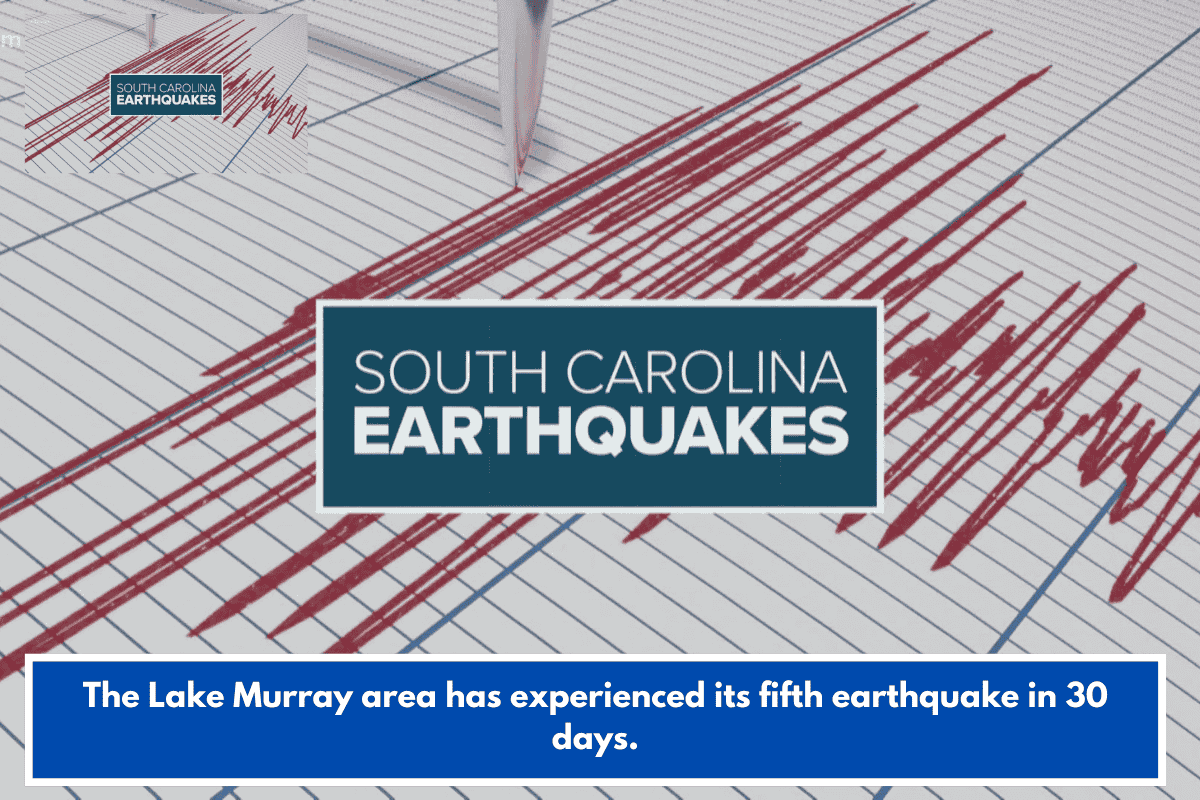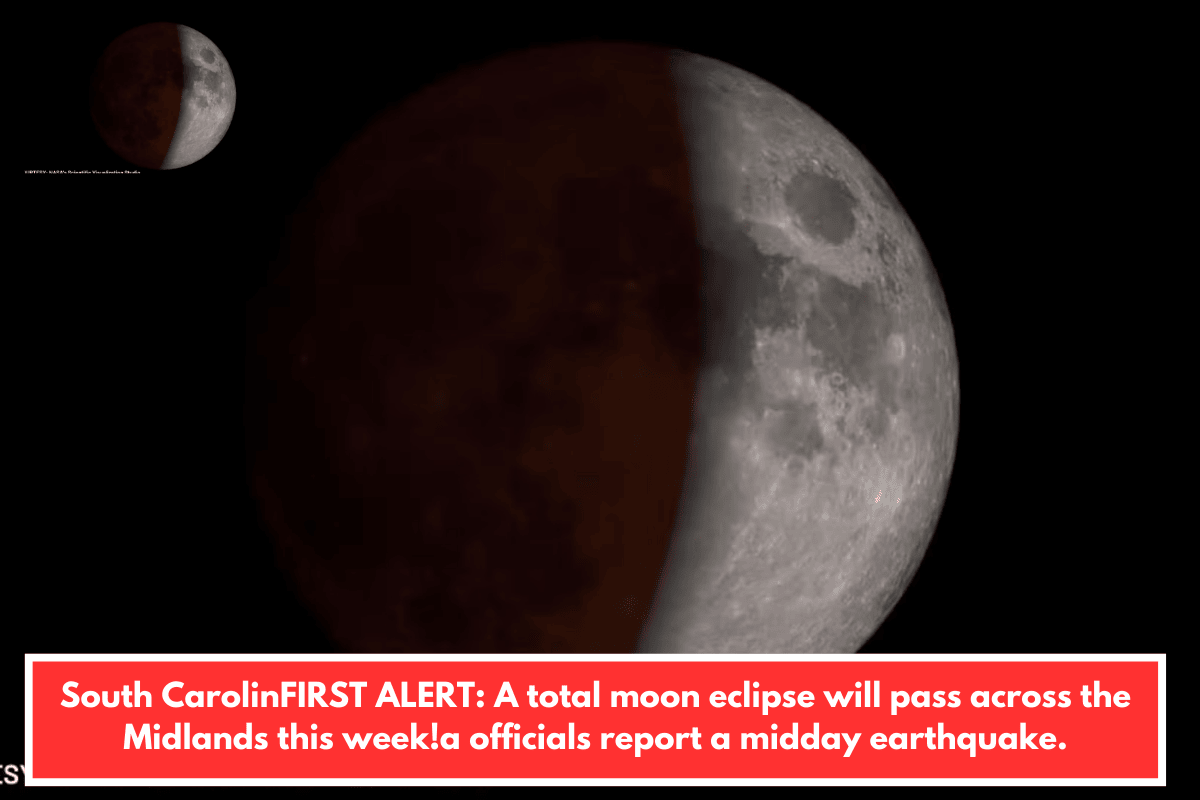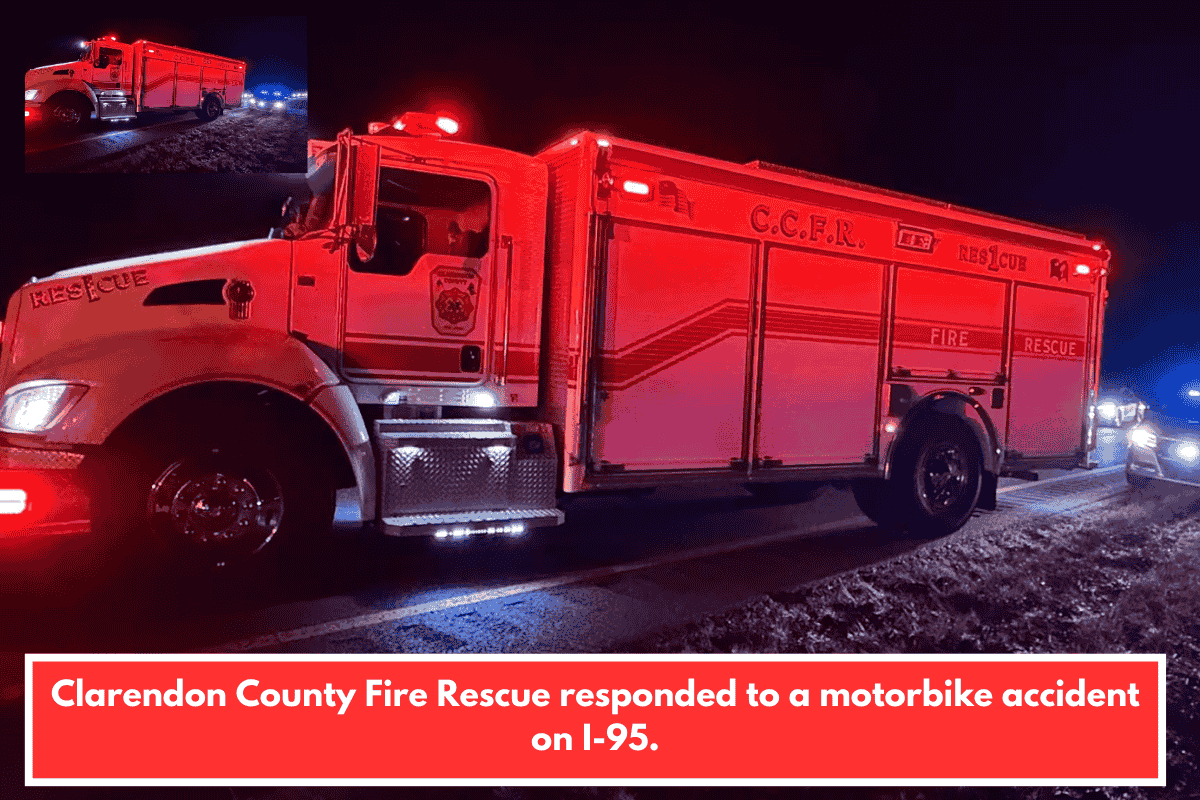CHARLESTON, S.C. – A heat advisory is in effect for several counties across the Lowcountry as the region braces for record-breaking temperatures this weekend. The National Weather Service (NWS) is urging residents to take precautions as the extreme heat could pose serious health risks.
Counties Affected by the Heat Advisory
The advisory covers the following counties:
Charleston
Berkeley
Dorchester
Colleton
Georgetown
Williamsburg
The heat advisory remains active through 10 a.m. on Sunday, followed by an extreme heat watch that will last from Sunday morning through Monday evening.
Forecasted Temperatures and Heat Index
According to forecasters, actual temperatures are expected to climb to 101°F on Sunday and 100°F on Monday. The heat index, which measures how hot it feels when humidity is factored in, could reach up to 115°F.
How to Stay Safe During Excessive Heat
With dangerous heat levels expected, health officials are urging everyone—especially older adults, young children, and those with health issues—to take precautions. Here’s what experts recommend:
Stay hydrated by drinking plenty of water throughout the day, even if you don’t feel thirsty.
Apply sunscreen at least every two hours when spending time outside to protect your skin.
Take breaks in the shade or indoors if you start to feel dizzy, lightheaded, or overly tired.
Limit strenuous outdoor activity, especially during peak afternoon hours.
Check on elderly neighbors or family members, especially those without access to air conditioning.
Public Reminder
The National Weather Service reminds residents that heat-related illnesses can develop quickly, especially during extended periods of extreme temperatures. If you or someone you’re with begins to feel confused, weak, or experiences rapid heartbeat or nausea, it could be a sign of heat stroke, and medical attention should be sought immediately.
As temperatures across the Lowcountry rise to dangerous levels, staying informed and prepared is the key to staying safe. Drink water, stay cool, and limit time outdoors. These simple actions can prevent serious heat-related health issues during this period of extreme weather.














